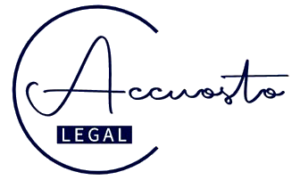CIVIL LAW AND CRIMINAL LAW. TWO WAYS TO DEFEND YOUR RIGHTS IN SPAIN
IP rights and Copyright, Consumer’s rights and D&O liability have a double protection in Spain: civil and criminal. In practical terms, these rights per se are defined by civil laws and protected by the Civil Law Courts; but they can also be defended in the Criminal Law Courts. In the first case, Claimant can only request redress of his rights, and payment of indemnities for the damages suffered. In the second, Claimant can also request imprisonment of the infringing party.
I. – IP LAW AND IT LAW
Both IP and IT rights have something in common: they protect very specific human creations. But they have different social and economic significance. In Spain specific laws protect: copyright and IT rights; patents; designs; and trademarks. And all of them have a double protection system: criminal and civil.
1. – Protection of copyright and other IT rights
Authors, editors, producers, as well as creators of software and other IT rights, are protected by our Law of “Intellectual” Property (i.e., Copyright Law).
Article 2 of our Copyright Law establishes: “Intellectual Property includes all personal and financial rights, which provide the author the right to use his work and an exclusive right to financially exploit his work”
This covers: (i) the right to always be recognised as author; (ii) the commercial use by the author / editor / producer himself; and (iii) the right to transfer to a third party the commercial use of the work created.
Copyright and IT rights do not have to be registered, to be protected. The simple proof of their existence and creation is enough. But this proof is not easy, unless they have been registered, in the official Copyright Register.
2. – Protection of Intellectual (“Industrial”) Property
Spain has specific laws protecting what we call Industrial Property (Intellectual Property in the US and UK). For example a Patent Law and a Design Law: protecting the creation of techniques or objects with an industrial use, and its commercial use. We also have a Trademark Law, protecting signs or marks, which identify and differentiate products, so that they are distinct from similar objects.
In order to be really protected, all these inventions and / or objects have to be registered as patents, designs or trademarks.
3. – Civil Law Court Actions to protect copyright and IT rights, and “Industrial” IP rights
Once the registration is granted, the rights protected can be used against infringers. Its owner can request protection from the “Commercial” Courts, through a Civil Action to oppose attacks by third parties.
3.1. – All said Laws (on Patents, Design, Trademarks, and Copyright and IT rights) have specific Civil law actions to obtain that the infringing party:
Ceases and desists
Redresses the evil effects of his activities
Indemnifies damages caused (and proven): real direct damages, and losses
Pays moral damages
Publishes in the newspapers (and pays) a summary of the Court Decision
3.2. – All said Laws permit that the Judge grants Preliminary Measures. If and when the Judge considers there is an imminent danger for the rights to be protected, before a final decision is granted.
4. – Criminal Law Court Actions to protect copyright and IT rights, and “Industrial” IP rights
Our Penal Code punishes certain infringements of Copyright and IT rights, and “Industrial” IP rights, if they are especially important. Criminal actions are served before normal Criminal Law Courts.
4.1.- For a Criminal action to be served, the infringer has to have: (i) Criminal intent: and (ii) A specific intention to obtain unfair enrichment.
And the activity, to be considered criminal, must cause damages to a third party (the owner of the right or his licensee)
4.2.- This crimes can be pursued by the Public Prosecutor (or the police) or by the owner of the rights infringed (or his licensee).
Given the severity of the punishment, including imprisonment, most Criminal Law Judges are not prepared to condemn the infringers.
5. – Which action (criminal or civil) is more suitable ?
It depends on the circumstances of the case.
5.1.- Criminal Proceedings are suitable, if the infringement is done through a “servile” imitation (i.e., exact and precise copy of the original); and this is done by organized criminals, specialised in this imitations.
The biggest problem in Spain –in these Criminal Proceedings- is proving to the Judge that the infringement is done with the idea and knowledge, and intention of committing a crime. Judges tend to understand that the infringer has no criminal intention, whenever they consider that the imitation is sufficiently different from the original product, or a consumer can easily differentiate them; hence, no crime has been committed.
Furthermore, Criminal Proceedings may train for long periods, without control by Claimant. It is up to the Judge to decide whether the imitation is a crime, and an Oral Hearing is necessary to decide the criminal complaint; or the case should be filed and closed.
5.2. – Accordingly Civil Proceedings are generally preferable.
The Civil Claim is normally more predictable, if certain similarities appear, between the original product or object and the imitation. The Proceedings take around one (1) year in the First Instance, and the timescale is predictable. The evidence needed is normally predictable too: proving the similarities between both products; and the damages caused by the infringement.
Furthermore, Preliminary Measures are regulated more in detail in our Civil Laws of Procedure. We can previously know what documents and proofs we need to obtain them. And Civil Judges are more in favour of Injunctions than Criminal Judges.
II. – CONSUMER PROTECTION
The Spanish Law on Consumers protects users of products: persons or companies who acquire or use, as final users, goods, products, or services, whoever may be the provider.
1. – Civil Procedure
In general terms, consumers have rights to claim in Court, for defects in the products / services they buy, and do not work according to what was offered by manufacturer or seller. Both of them could be deemed jointly and severally liable, for these defects. Furthermore, both of them are liable for any damages caused to consumer, due to the product’s normal or abnormal use.
Our Consumer Law permits, both (Civil) personal and class actions, in certain cases. The Claim may cover: stopping the commercialization of the product; redressing the illegal situation, and indemnification of damages.
In certain cases, our Consumer Law and our Arbitration Law give claimants the possibility of claiming in a “Consumer Arbitration”, before a Local Government Body. This is becoming more and more popular among consumers, because it is quick and un-expensive.
2. – Criminal Procedure
Criminal actions, for the protection of certain consumer rights (and similar, as environmental rights), are also included in the Spanish Penal Code. But they should also be used in exceptional cases only.
Especially cases of false publicity with a massive damaging result for consumers; or the same massive result connected with false invoices; or massive activities causing health damages of fraud through consumer products. In some of these cases, the person suffering the damages is the one to serve the Criminal Complaint; in others, it should be the Public Prosecutor.
A specific condition, to accept criminal complaints in this area, is that the activity causes damages to a plurality of consumers, or to the general public interest.
3. – Which action is preferable: criminal or civil?
As previously, in general terms, the Civil Actions are preferable in consumers’ protection, and related areas. For example, the evidence needed must only prove: the facts causing the damages; the damages caused; and the connection between both. They are “objective” liabilities. Claimant does not need to prove the bad faith, in Defendant. Our Consumer Law establishes a general presumption in favour of the consumers; it is the manufacturer, or responsible company, who must prove it acted in good faith and with sufficient care and respect to the rules applicable to the product.
III. – DIRECTORS AND OFFICERS LIABILITY
Spanish Company Directors are jointly and severally liable, for damages caused to shareholders or creditors, or even third parties, for damages caused by their activities, that are against the Law or the Company’s By-Laws, or negligent. This is connected with a certain standard of “diligence, fidelity and loyalty”, established by Case Law.
1. – Civil D&O Actions
Both the Company and creditors, and shareholders and third parties in certain cases, have a right to claim D&O liability before the Spanish Courts.
The Company (and creditors, if the Company does not serve a civil Claim) have a general right to claim Directors’ liabilities. Shareholders (and creditors and third parties too) have another, direct right to claim against Directors, if they have directly damaged their rights or interests.
This very general and broad right to obtain redress of damages caused by liabilities has also a Criminal Law counterpart.
2. – Criminal Complaints against D&O
Again, extreme cases, where the D&O activity has been clearly illegal, may give birth to a Criminal Complaint. But only if certain conditions are met. For example, that the directors’ activity has caused direct financial damage to a certain person, and has had an effect in the “general financial order”; and the evidence shows that the director abused his position as such; and he obtained personal gains through his activity, with a specific damage of the Company or the shareholders.
As in the previous cases, the Criminal Courts will always request more evidence of the criminal facts, and will always request proofs of the Director being aware that his conduct is illegal, while the Civil Court will probably be satisfied with evidence that “objective” events occurred.
IV. – CONCLUSION
In general terms, we think that the Criminal Complaints and the Criminal Courts should be used as an “ultima ratio”, in most extreme cases. Claimant should be sure –and have evidence- that the facts have occurred with the participation of people, who really know that the activities are illegal, and a crime. In other cases, the Civil Court Claims are advisable, and normally more successful.
However, many Criminal Law cases are open in Spain, without a clear basis. And we should be aware of that, and prepared to defend ourselves and / our clients.
Santiago Nadal

